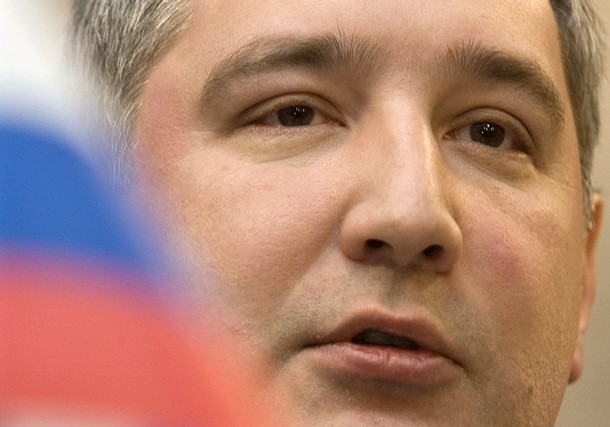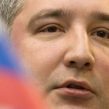
NATO MINISTERIAL MEETING DEALS GINGERLY WITH RUSSIA’S WAR ON GEORGIA
Publication: Eurasia Daily Monitor Volume: 5 Issue: 160
By:

For an organization that has come to rely heavily on words and symbolism, NATO issued a disconcertingly evasive communiqué at its emergency meeting on Georgia (NAC Statement, August 19). The North Atlantic Council held a “special session” at the level of Foreign Ministers in Brussels on August 19, eleven days into Russia’s military invasion of Georgia.
One attending official seriously remarked that collecting 26 ministers in August took time and could be seen as a success in itself. But it seems just as likely that the Alliance delayed the meeting in hopes that Russian troops would have begun withdrawing from Georgia by August 19, sparing the Alliance the trouble to deal with that problem. In the event, however, that problem stared NATO’s ministerial session in the face.
Reflecting a lowest common denominator among Allies, the communiqué vaguely echoes the French-brokered armistice plan (see EDM, August 13, 18, 19) in calling for the withdrawal of Russian troops from Georgia’s interior. The placement of this demand near the end of the communiqué seems to de-emphasize its significance. The first mention of Russia appears only in the second paragraph, and it is a positive mention: NATO “welcomes the [armistice] agreement reached and signed by Georgia and Russia.” No reference to the Russian military duress, under which this flawed armistice was “reached.”
The communiqué urges prompt, good-faith implementation of the armistice, politely ignoring its loopholes. Rising, however, above that document, NATO endorses Georgia’s territorial integrity, which the Franco-Russian text of the armistice cast aside.
The Alliance announces, “We have resolved that we can not continue business as usual [with Russia]. We call on Moscow to demonstrate both in word and in deed its continued commitment to the principles upon which we have agreed to base our relationship.” The document stops short of recalling those principles (this would have delved into the Alliance’s decade-old wishful thinking) and it does not say how it would depart from business as usual with Russia.
According to officials in the run-up to the meeting and on its sidelines, NATO is suspending joint activities with Russia, including military exercises and some political-level meetings, until Russia’s troops withdraw from Georgia, whereupon such joint activities would resume. Those post-2002 joint activities and, now, their suspension belong mostly in the realm of political symbolism. NATO had all along displayed far greater interest than Russia did in joint exercises and political meetings. Their suspension would not affect Russian behavior in the present crisis or in those that seem likely to ensue after this one.
Presumably, the Alliance is pondering how to handle the participation of Russia’s Black Sea Fleet in NATO’s Operation Active Endeavor. NATO had touted Russia’s participation in that annual exercise in the Mediterranean as one of those symbolic successes with Russia. That same Russian Fleet, however, has now blockaded Georgia’s ports and has landed thousands of troops for military action in Abkhazia against Georgia. These actions also violate the neutral status of Ukraine, on whose territory that Russian Fleet is based. NATO might not welcome it back to joint exercises, following that Fleet’s attack on a NATO aspirant country.
The ministerial meeting in Brussels decided to create a permanent NATO-Georgia Commission, for which the North Atlantic Council shall rapidly develop the modalities (NAC Statement, August 19). This Commission would focus on post-conflict reconstruction in Georgia, from damage assessments to restoration of public services and relief to internally displaced Georgians. A first team of civil engineers is already being sent to help plan the rebuilding of schools, hospitals, and airports. But while Georgia is in dire want of such assistance in the aftermath of Russia’s destructive invasion, NATO for its part hardly needs yet another social work undertaking, among the many that dilute the Alliance’s core mission and dissipate its resources. In any case, there is no funding authorization for this Commission’s civil projects as yet.
The NATO-Georgia Commission does not seem likely to follow the model of the NATO-Ukraine Commission, which is designed in part to bring the country closer to the ultimate goal of NATO membership. The NATO-Georgia Commission seems weighted down by a socio-economic agenda. The decision to create this Commission is a product of compromise between supporters and naysayers of Georgia’s application to NATO for a Membership Action Plan (MAP). The August 19 ministerial meeting has merely confirmed earlier decisions to review Georgia’s application at the December 2008 ministerial meeting, in the run-up to the April 2009 NATO summit.
The Allied communiqué does not mention military assistance programs for Georgia. The United States, however, has announced its intention to help Georgia restore its capacity for self-defense, which lies in ruins after the Russian invasion. Russian forces have systematically targeted Georgia’s military infrastructure, particularly the U.S.- and allied-built bases and airfields, and carted away the stockpiles of arms and equipment.
Russia has reacted with scorn, rather than relief, to the Alliance’s weak communiqué: “empty words,” “a mountain gave birth to a mouse” (Interfax, August 19), declared Russia’s envoy to NATO, Dmitry Rogozin, whose almost daily insults NATO tolerates in NATO’s own home.
In Moscow, however, Minister of Foreign Affairs Sergei Lavrov called a press conference to denounce U.S. support for “Saakashvili’s criminal regime.” This is now Moscow’s official terminology with regard to Georgia, and Lavrov warned the United States and NATO that they must make a choice between working with Georgia or with Russia (Interfax, August 19). Ahead of the NAC’s September visit to Georgia and the Alliance’s December ministerial meeting, Russia tries to intimidate at least some NATO governments into delaying approval for a Georgian MAP.




